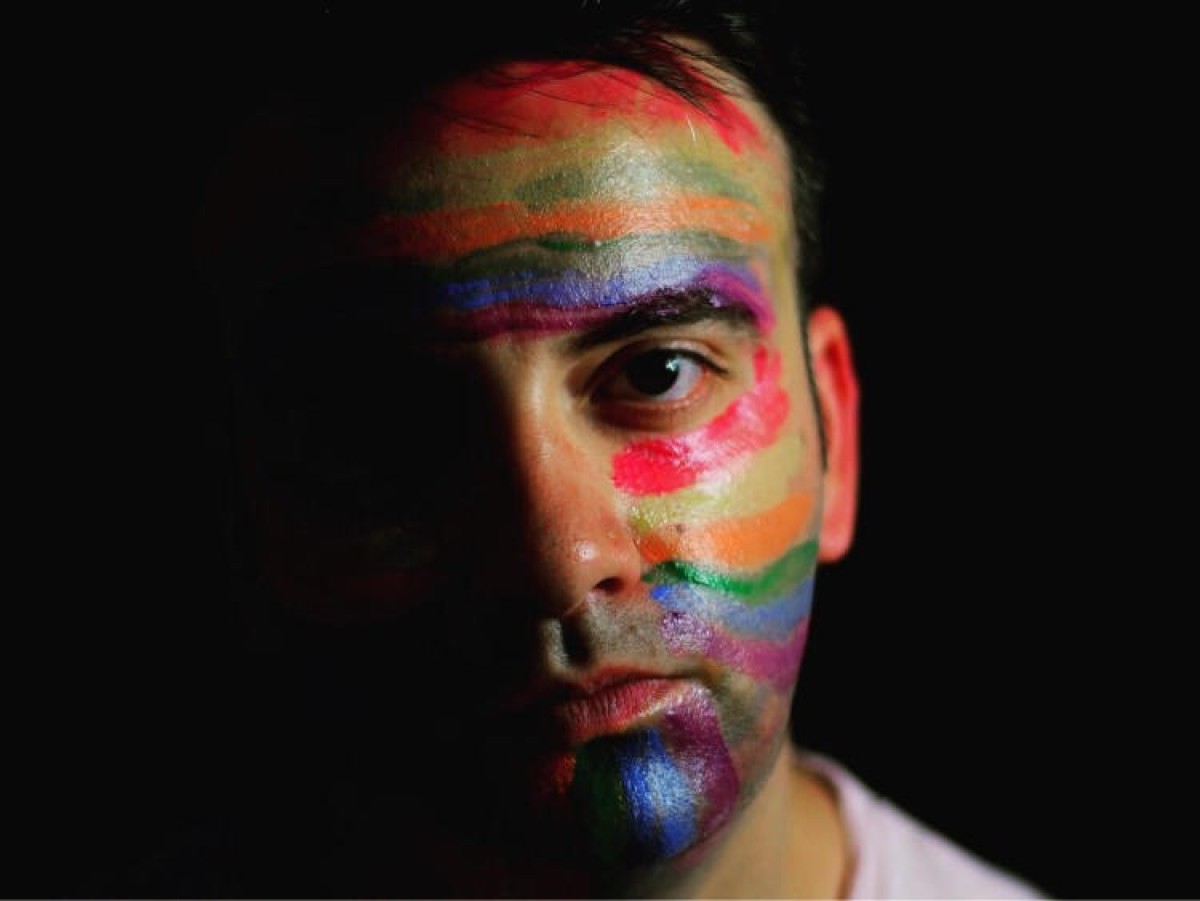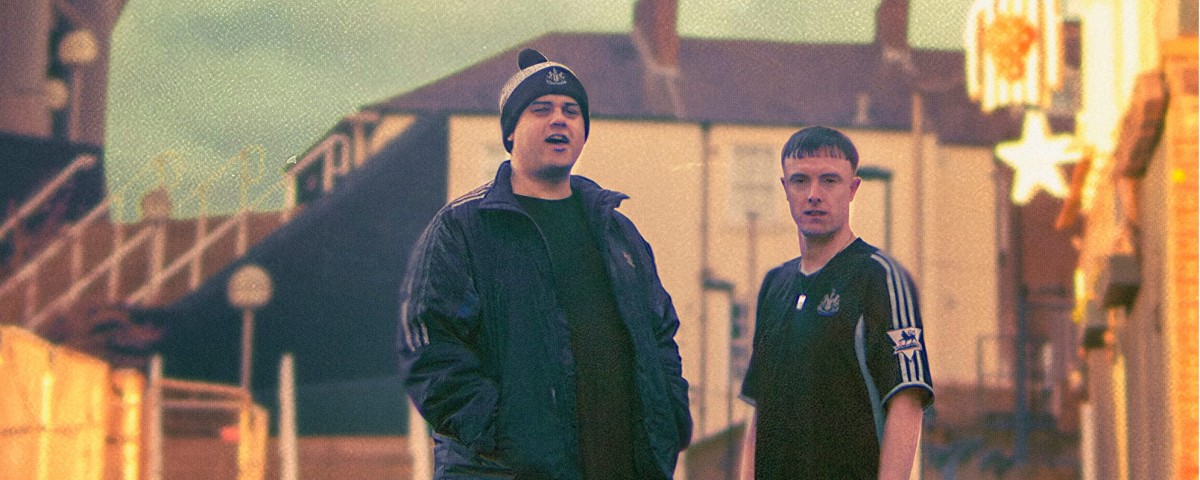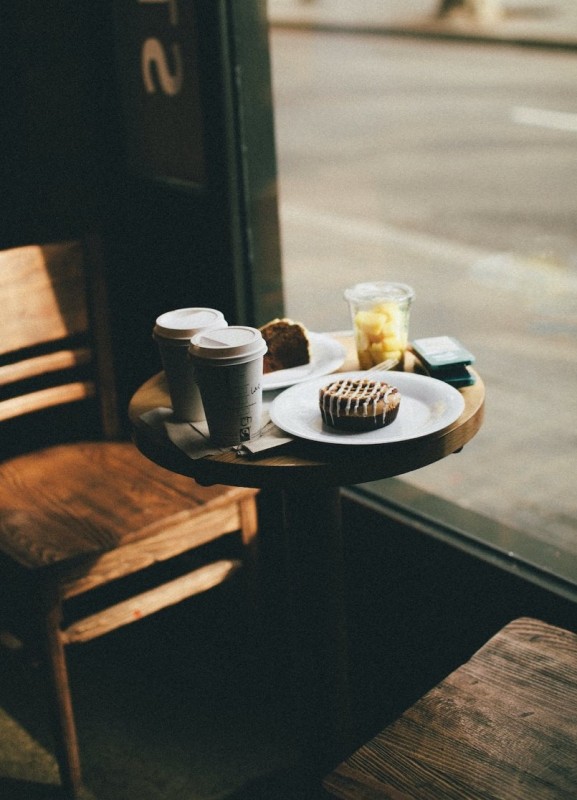Five Minutes With... Alphabetti Theatre's Ed Cole
We sit down for a chat with Ed Cole from Alphabetti Theatre

Since being appointed last June, Ed Cole has taken the title of Artistic and Executive Director fully in his stride, passionately maintaining Alphabetti Theatre's reputation as one of the most beloved venues in the city.
So, in celebration of World Theatre Day on the 27th March, we caught up with Ed to chat through Alphabetti’s upcoming programme, the issues that the industry faces in the UK, and why “any old man in a play” is his dream role - yes, really!
You were appointed the new Artistic and Executive Director of Alphabetti back in June last year. How’ve you found these initial months?
Really good! In a lot of ways it’s my absolute dream job. It’s a steep learning curve definitely - I’ve not run a building before! I co-founded my own theatre company in Hull with a group of friends and saw that through for about seven years, and saw that grow and develop and become part of the Arts Council’s National Portfolio which meant regular funding, so I’ve seen that sort of progress in a theatre before,
Obviously coming here, Alphabetti’s about ten years old and I recognize a lot of the same sort of problems that needed solving and issues that revolve around running an arts organization, but then with the addition of having a building as well, which brings its extra challenges. But I was really lucky - the staff who all work here are just fantastic and really helped me find my feet.
Ali, my predecessor, and I had about a three month crossover period so he was able to show me the ropes. He left in October, then we had a season of work programmed all the way up until the end of the year in 2024, so I was overseeing that as it were. So it kind of felt like I started in June, had a second start date in October when Ali left, then had another start date at the start of this year when it’s like my programme. It’s been nice and gradual!
I think the reputation that Alphabetti had already when I arrived across the city everyone was so positive – like everyone I’ve spoken to at the council, all of the other art organisations and theatres across the town, and the freelancers as well especially have all just got such good things to say about Alphabetti. It feels like kind of the easiest thing in the world to just come in, and everyone already loves Alphabetti. It’s just my job to make sure we live up to what everyone wants us to be.

Who or what first got you into theatre?
Good question! I’ll just say I was really lucky. I did GCSE Drama in school, I just happened to be in a year with a youth theatre. We all did the school plays, and we sort of formed this bond – I mean we were already friends! – but we just started making theatre amongst ourselves as well. So we’d all audition for the school play and we’d all go in for the youth theatre stuff. When you’re thirteen, fourteen, that’s a really formative age, so I was just really lucky that theatre was never unusual – sometimes it feels like it’s for a certain kind of person, or it feels inaccessible because not everyone does it or it’s not part of the curriculum in that way – but for me it was, I was always doing two or three plays at once so it was never unusual.
By the time I got to sixth form, me and the same group of lads did it at A Level. We’d been making shows for like three or four years together already, and so naturally it was what I was gonna do at uni, and it never felt like I actually made a decision to do that. Which I guess is just really, really lucky.
I think one thing I’ve noticed is that doesn’t really happen anymore, because it’s not as in the curriculum. I know that the high school where I did theatre, they don’t do it at GCSE or A Level anymore, I think my drama teacher – who I was still in touch with a while back – went to a different school in County Durham, and then last I heard she was teaching in Scotland because there’s no space for drama teachers anymore, because they just don’t exist.
I think that sort of route I had doesn't exist for many, many people, and actually feels quite privileged now, so I think part of my job is to do what I can to address that and make sure that everyone feels like theatre is as easy and accessible as I found it, because it was always just presented to me, like “here’s an audition, here you can do GCSE Drama if you want” - it was always just right there.

You’ve studied everywhere from London to Hull to County Durham. Wow different does the theatre community feel across the UK and what makes Newcastle so special?
This is a conversation we’re having every day with freelance artists – even just this morning I was speaking to a local playwright about it – and what I’ve noticed (and this is a nationwide thing) is that there’s no clear routes for theatre-makers or freelance artists anymore. You’ve got a lot of people who say ‘I’ve finished college’ or ‘I’ve finished uni’ or ‘I’ve finished drama school’ even, and ask what happens next. And the truth is – nothing.
Like there’s no joined-up thinking, there’s no actual career path – I know people who’ve even had shows on in London in big several hundred seater theatres and they’re living in shared accommodation in a flat somewhere because the sad thing is there’s no sustainable career path that I can kind of point anyone towards.
And it’s my job now, in this position, to do that, to say "oh do this, do this", and to be honest nothing’s really guaranteed at the moment. There’s no funding, and the small amount of funding there is, everyone’s sort of fighting over and theatres across the county have been closing and losing out on money for a long time now - decades even - and there’s been a sort of systematic underfunding of the arts, which is very depressing.
But I think it’s really, really important to be honest about that. I think there’s no chance of solving the issues that theatre and the arts face unless you’re honest about the current state of affairs and circumstances. It is a tough conversation to have, but lthe arts are broken, there are no career paths, no-one as a freelancer can support a career in the arts unless they’ve got a secondary job that they can do alongside it – which is hard because you need to have flexibility. So, I think just being honest about that is the main thing - and I think that’s definitely nationwide, or certainly outside London, it might be a little bit different in London depending on the circumstances.
I grew up in the North East, and I love it here. I always felt I would end up in Newcastle and I’m really glad that I have. I do feel that there’s a unique element to the region that lends itself to theatre and the creative arts and I feel like everyone here has more desire than the rest of the country to want to be sociable and hang out with each other. My wife’s from down south and she’s always like "oh everyone’s so friendly and always says hello to you in the park with the dog" - we’re just more sociable up here, especially more than London, but I think than most other places in the UK. And what that says to me is that people want to hang out - people want to be in spaces where they’re sharing an experience whether that’s like football, or a gig, or theatre. So I feel like this is the right place to be to address those issues that I was talking about as an industry, because here more than anywhere I feel like it’s really important because people want to share an experience together.
It's about making that argument to the powers that be and saying "look this is something that people desperately want and actually they need, they want to hang out in spaces" – no-one really wants to stay home seven nights a week, three or four nights a week fine! – but here more than anywhere else I’ve noticed, and I believe there is, a desire to want to go to those communal spaces and the theatre can play a massive part in that. Especially somewhere like Alphabetti which is based on, you know, not necessarily being like a normal theatre. It’s very different walking in here than it is to say, walking into the Theatre Royal. We’re obviously accessible as much as we can be, and it’s relaxed, there’s no rules you don’t have to dress up to come to the theatre, we try and make it so that everything’s affordably priced so everyone’s got access, we try and make our program diverse so everyone’s got something they feel they can come and see, and that’s something for them.
I feel like this place in this city is doing the things that I think we should be doing to address those nationwide issues. But you know, it’s a huge long journey we’ve got to go on to try and resolve all those problems, but I feel like I’m in the right place at least.

What does World Theatre Day mean to you and Alphabetti?
To be honest, World Theatre Day just means another day! No, I think it’s great - I think it’s important to have a bit of recognition if it just means someone, somewhere, just one person picks up their local theatre brocuhure and goes "oh World Theatre Day! I wonder what’s on at my local theatre" then that is enough. Just something to make someone break a habit and maybe go to the theatre for the first time. I think it is harder than ever to go to the theatre - I know that sounds really daft - but it’s more expensive than ever just to leave the house to do anything. The cost of transport, the cost of eating out, the cost of the ticket, getting home late afterwards - it all feels much harder than it used to be and that’s a real shame.
An anecdote we used to tell at my old theatre company was "no-one goes to the cinema and sees a film and says ‘well that film was sh*t so I’m not going to go to the cinema again’", whereas a lot of people go to the theatre, see something bad, and go "well I’m not going to the theatre again" and then they won’t go again for like three years because they went to see a play once and it was rubbish. I still don’t quite know why that is, but I do understand it.
Again, if we can make people realise that theatre doesn’t have to be a certain thing – people get a certain vision of theatre in mind, maybe that’s because of education, maybe that’s because of a bad experience seeing some crap Shakespeare when they were 17. But for me it’s always been somewhere you just go and basically do what you want, and you can relax, and hang out with people and have ideas and it’s just been a really fun communal environment for me for my whole life. I just kinda want to get that message across that theatre is not a certain thing, not what you automatically think it is, but it could be many other things. I think if Alphabetti can get that message across on world theatre day, but also the rest of the time, then that’s something I’d like to promote.
What's your dream on-stage role?
I haven’t acted in like four or five years… I did like Shakespeare growing up, and I did a lot of Shakespeare at university, and thought when I’m old I’d like to play King Lear because he’s just an old man that goes mad - I always just thought that’d be a fun thing to do! I won’t be old enough for King Lear for another twenty or thirty years so… an old man, any old man in a play!. I’d like to think that I could carry on acting again when I’m in my sixties or seventies, so King Lear as an old man!

If you could stage anything at Alphabetti, what would it be?
What I’d love to stage – and this isn’t an actual play that exists – is a play that really tells the story of what living in Newcastle in 2025 means to everyone. I get a lot of scripts sent in to me and I’ve read a lot of scripts that’re about dystopian futures, but especially regional work that’s about the past, or like the 1990s or the 1980s, or going further back to the 1800s or whatever. But I don’t think I’ve read a play that’s set in Newcastle in 2025 about what life is like in this city right now, and I’m really interested in to why that is. So if I could stage anything, it’d be like the definitive state of Newcastle - a state of the nation play that everyone goes and sees and is like "oh yeah that’s exactly what it’s like to be living in Newcastle right now", that’s what I’d love to stage. I don’t know what it’s called… Newcastle 2025?!
I went to see Gerry and Sewell, my friend Jamie produced that - it went from Laurels to Live to Theatre Royal - and that had a huge audience. I think because obviously it’s got Newcastle United tie-ins, but also that was trying to do that thing of like "this is what life’s like these days in Newcastle." I saw one in The Customs House as well called A Class Feeling that a friend of ours had written and directed… those plays are out there, I just feel like that story’s not being told quite often enough, so yeah. That, or King Lear!
Again, the thing about Alphabetti is that you want to be surprised, you want to go in and be like "I’ve never seen anything like that before!" or "that was a bit weird, I wasn’t expecting that!" - so that’s part of the beauty of it. To have this ideal show in mind kind of spoils it a little. I want to be blindsided, I want something to come across my desk and be like "oh I never thought I’d want to put this on but it has to go on here, because no-one else is going to put this on". Stuff that’s a little bit quirky, a little bit weird, a little bit daring, like pushing the boundaries of what you think you can do in the theatre, like it doesn’t have to be two people in a room with a sofa.
We were having a conversation with one of our development team this week and she was saying "well what happens if the stage directions say like ‘a tank comes through the wall’? how do we make that happen in a space like ours where there’s eighty seats and it’s really small and there’s no big tech?". But you want to push the boundaries of what theatre’s about, you want to use lighting design and sound design and all these amazing people that’re involved in theatre in this collaborative process of brilliant creativity. You want to test yourself, you want to challenge yourself, you want audiences to be surprised by stuff. So I’ve got ideas and I’ve got stuff I’d like to do, but in reality I feel my job is sort of to listen to the people who’ve got the craziest ideas, and try and find a way of doing them.
Alphabetti Theatre is located on St James' Boulevard, Newcastle upon Tyne, NE1 4HP. For more information, visit www.alphabettitheatre.co.uk.
Main Image: Alphabetti Theatre's Artistic and Executive Director Ed Cole, Photo by Chloe Smith
Want to be in the know about everything that’s happening in Newcastle city centre? Sign up to our newsletter and follow us on Facebook, Instagram, X and TikTok.



